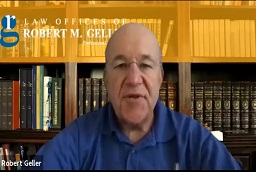 PPC Management should be approached in the same way that a high school science teacher teaches his or her students to approach each individual experiment that takes places in the science classroom.
PPC Management should be approached in the same way that a high school science teacher teaches his or her students to approach each individual experiment that takes places in the science classroom.
The scientific classroom experiment using the follow structure:
1. Creating a hypothesis
2. Test
3. Analyze
4. Report findings
This structure works brilliantly for a PPC Manager, but many PPC Managers do not create a hypothesis before making changes to their campaigns and therefore they never really know if the outcome of the changes they made to their PPC campaigns were in line with what they believed would happen or not. Nor do PPC Managers allow enough time for their PPC campaign tests to truly flourish.
Take a flick through the five outlined areas below for successful PPC Management Testing and check to see how effective you are being as a PPC Manager within a few minutes.
Avoid Disruptions to the Entire PPC Account
A good science student will not make changes to an entire experiment if those changes need not be made. A good PPC Manager is just the same. If you want to test an idea, to change something about your advertisement text for instance, avoid changing all advertisement text at once. Just change one and then compare the results against the results of the advertisement text that you didn’t change.
If you are simply making changes to see if things can be improved, rather than because the campaign is not working, then changing everything at once makes no sense. If it isn’t broken, don’t fix it, is a phrase that springs to mind.
 Avoid Testing Different Areas at Once
Avoid Testing Different Areas at Once
If a scientist begins to test different chemicals at the same time on the same material, for example, then he or she can never truly be sure which chemicals caused which reactions in the material.
If a PPC Manager makes changes to negative keywords, to bids and to advertisement text all at once, how will they ever be sure which change helped to improve the PPC campaign or which change actually made it worse?
Do not Rush your Tests
Science is a lengthy process. Waiting for test results takes patience. Think about when you go to the doctor and you have a scan or they take a blood sample to do some tests. You have to wait for the results. If things are not given enough time, then results cannot be trusted.
PPC Management is exactly the same. The science student must be patient and wait for the results. PPC Managers need to give any change that they make to their PPC campaign a reasonable amount of time before they can actually be sure about the data that they are receiving.
 Know your Audience’s Context
Know your Audience’s Context
As a good PPC Manager you must be aware of the surrounding influences. The one thing that a scientist has on his or her side is the fact that they can control the environment within which they work; within which the experiment is taking place.
If the scientific test needs heat, then heat can be maintained. If it needs to be conducted without oxygen getting to the material, then this too can be arranged.
However, the PPC Manager is dealing with a lot of loose cannons. Internet users are loose cannons. They are people with feelings and emotions and lives beyond that of the Internet. Who knows how all of that might affect them when seeing one of your advertisements!
Therefore it is important to know the context of your audience.
When do they log on to the Internet? Do they like information or does a lot of text bore them? How old are they? and the list will no doubt continue.
Use Technological Developments
Scientists love to embrace technological developments and advances in knowledge.
PPC Managers should love the PPC tools and features that are continuously developed to make their PPC Management more effective day in day out too.
If you are not up to date with PPC Management features and tools then you are a poor scientist….erm….we mean….a poor PPC Manager. Stay tuned to the Webrageous Studios Blog and any information about new Google AdWords tools and features will be sent your way with very little effort on your part.



















